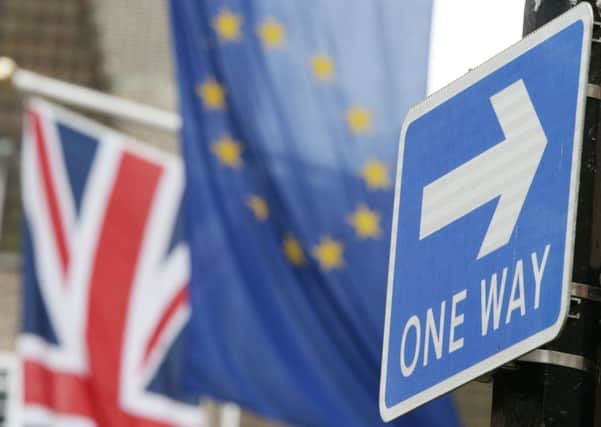Cabinet position on Brexit is '˜very clear' insists minister


International Development Secretary and Leave campaigner Priti Patel insisted that the Government’s position on the future of immigration and trade with the EU is “very clear”, while rejecting claims that eurosceptic MPs are not having their voices heard.
Her comments follow a scathing intervention from the Institute of Directors (IoD), which accused ministers of peddling “soundbites” on Brexit and called on the Cabinet to “come to a collective decision” on the need to secure a “smooth” withdrawal.
Advertisement
Hide AdAdvertisement
Hide AdIn a sign of the growing frustration among many British business leaders, the organisation said a clear, unified approach would “send a significant signal of confidence to companies that the UK is committed to minimising the need for disruption”.
Recent weeks have seen senior Conservatives at loggerheads over plans for Britain’s exit from the EU, with ministers offering vastly different accounts of how trade and migration will change come March 2019.
The Chancellor Philip Hammond has spoken in favour of a transitional deal that could last up to three years after Brexit, including a phasing in of new immigration and trade rules. Cabinet Office Minister Damian Green and Home Secretary Amber Rudd are also reported to hold similar views, with the latter stressing the need to avoid a “cliff edge” for EU nationals living in the UK.
However, the International Trade Secretary Liam Fox has suggested the continuation of free movement after Brexit would “not to keep faith” with the result of the referendum, while the former Brexit minister David Jones has described Mr Hammond’s approach as “deeply dangerous”. Writing in the Telegraph this week the Brexiteer MP Peter Lilley attacked the assumption that any form of transitional arrangement is “necessary”.
Advertisement
Hide AdAdvertisement
Hide AdHowever, responding to the IoD’s comments, Ms Patel argued that the Government had “a very clear position” on Brexit policy. She added that this was the same position outlined by the Prime Minister in her Article 50 letter.
“You know, come March 2019, the United Kingdom will be leaving the European Union... That means we’ll be taking back control of our borders and our immigration policy, which means an end to free movement,” she said.
“And our position is very clear on that, along with the fact that we are all working together as a Government to secure the best deal for Britain so that we can prosper as a nation.”
While the Conservatives were busy defending their Brexit policies, Labour leader Jerermy Corbyn also came under pressure from his own MPs to change the party’s stance on free movement.
Advertisement
Hide AdAdvertisement
Hide AdMr Corbyn has previously stated that freedom of movement for EU nationals must come to an end when Britain leaves the trading bloc.
However, a handful of MPs and MEPs – including Clive Lewis and David Lammy –have joined forced with local party members to call on Labour “to defend and extend the free movement of people”.
This view is in stark contrast to those of fellow MPs like Caroline Flint, who point to the referendum result as a sign of the public’s dissatisfaction with current immigration rules. The party is also at odds over membership of the European Single Market.